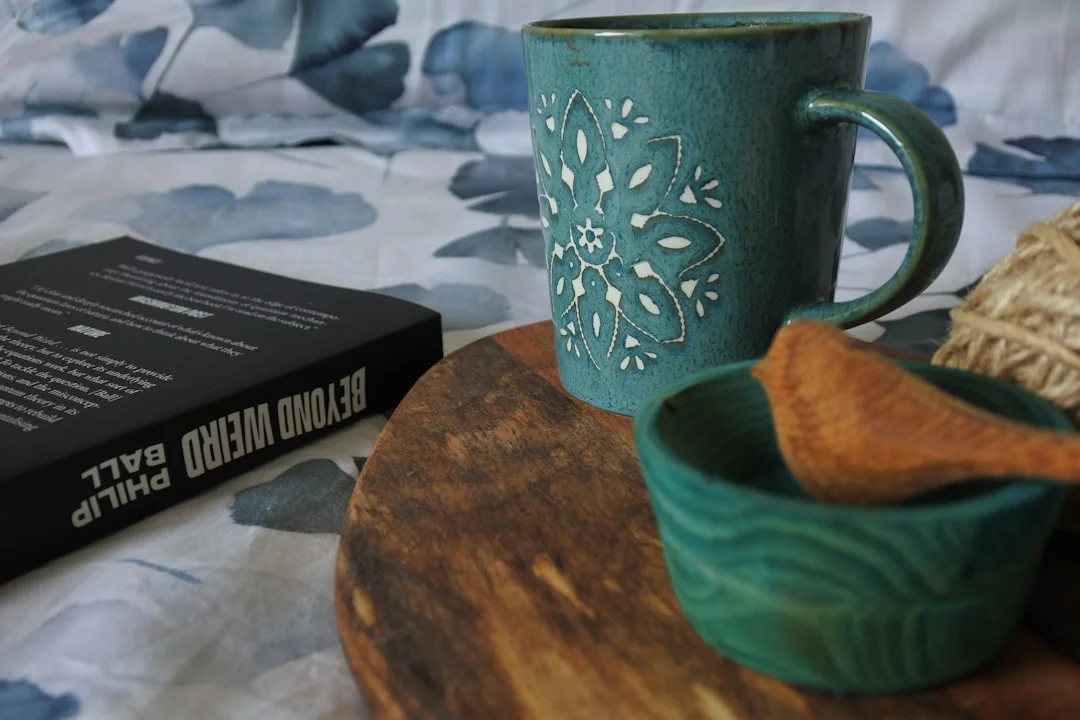Estimated Reading Time: 8 minutes
WW all crave a bit of tranquility in our lives, don’t we?
In 2025, with the constant buzz of notifications and the relentless pace of modern living, it’s more vital than ever to find ways to unwind.
While CBD has certainly carved a niche in the wellness world, it’s not the only path to peace.
This article delves into the fascinating realm of calming natural herbs besides CBD, exploring time-tested remedies and offering practical ways to incorporate them into your daily routine.
Think of it as a gentle nudge toward a calmer, more balanced you.
And let me share, I’ve tried quite a few of these, and the results have been, well, surprisingly delightful.
It’s important to understand that these natural options are not intended to replace medical advice, and the effects can vary.
But it’s also incredibly empowering to learn about the possibilities that the natural world offers.
For centuries, cultures around the globe have turned to plants for their soothing properties.
These traditions highlight the deep connection between nature and our well-being.
One key area to explore is the range of calming natural herbs besides CBD, each with its unique profile of benefits and potential uses.
From the fragrant lavender fields of Provence to the calming rituals of chamomile tea, the wisdom of our ancestors offers a wealth of options for promoting relaxation.
The rise in anxiety and stress-related disorders has also fueled interest in natural alternatives.
The market is, as we know, saturated with products, but what about turning back to the basics, the ones our grandmothers used?
We’re not just talking about feeling better; we’re talking about aligning with natural rhythms and practices that have stood the test of time.
Ah, lavender. Simply the name itself conjures images of serenity, doesn’t it?
Its delicate scent is synonymous with relaxation and is a key example of a calming natural herb.
Lavender contains compounds, such as linalool, that have been shown to have an anxiolytic effect (reducing anxiety).

This beautiful, versatile plant can be used in numerous ways: in essential oil diffusers, as a calming tea, or even in bath products.
Personally, I’ve found that a few drops of lavender essential oil on my pillow before bed is a simple yet incredibly effective ritual.
The subtle fragrance helps to quiet the mind and usher in a more restful sleep.
It’s not just anecdotal either: Several studies have supported the effectiveness of lavender in promoting relaxation and improving sleep quality.
One such study published in the journal *Frontiers in Behavioral Neuroscience* demonstrated a significant reduction in anxiety levels in participants who inhaled lavender essential oil.
Chamomile, with its delicate, apple-scented flowers, has long been associated with tranquility.
The gentle, comforting nature of chamomile tea makes it a perfect addition to an evening routine, it is one of the best calming natural herbs besides CBD.
It’s well known for its mild sedative properties, which can help to ease tension and promote restful sleep.
The active compounds in chamomile, such as apigenin, are believed to interact with receptors in the brain that regulate sleep and reduce anxiety.
A warm cup of chamomile tea before bed is not just a comforting ritual; it’s a gentle signal to your body and mind that it’s time to unwind.
I remember my aunt making me chamomile tea when I was a child, a memory that brings warmth with the thought.
For those struggling with sleep disturbances, valerian root might be the answer. This powerful herb has a long history of use as a natural sleep aid.
Its mechanism of action is somewhat complex, but it’s believed to work by increasing the levels of GABA, a neurotransmitter that has a calming effect on the brain.
It fits the profile of a beneficial calming natural herb.
The effect is a gentle, natural support for sleep.
Unlike many pharmaceutical sleep aids, valerian root is generally well-tolerated and does not typically produce the side effects like grogginess.
One personal anecdote from a friend involved in the study of sleep patterns showed that valerian root helped them overcome insomnia.
Always consult with a health professional before use, of course.
Passionflower is another gentle herb with an impressive resume in the realm of calming remedies.

Traditionally used to ease anxiety and promote relaxation, it has now found a more prominent role in natural health supplements.
The use of passionflower extends beyond the calming effects.
Studies have also suggested potential benefits for those experiencing mild anxiety or restlessness.
The flavonoids and other compounds found in passionflower interact with the GABA system to reduce anxiety, offering a calmative effect similar to some of the pharmaceutical drugs but with fewer side effects.
It can be taken in tea, tincture, or supplement form.
Integrating calming natural herbs besides CBD into your daily routine is relatively simple. Here are some ideas:
Remember to start slowly and pay attention to how your body responds.
The key is to find what works best for you and to create a personalized routine that promotes relaxation and well-being.
While calming natural herbs besides CBD offer powerful support, they are often most effective when combined with other healthy lifestyle habits.
Consider incorporating the following:
These lifestyle choices work synergistically to enhance the benefits of herbal remedies, creating a holistic approach to well-being.
It’s about creating a foundation of balance for your mind and body.
The beauty of exploring calming natural herbs besides CBD is that it encourages a more holistic approach to well-being.
You’re not just seeking a quick fix for stress or anxiety, but you’re also inviting natural practices into your life to support a balanced lifestyle.
The combination of herbs, mindfulness, and healthy habits creates a synergistic effect.
In my own journey, I found that a combination of lavender essential oil, a regular meditation practice, and a commitment to a balanced diet made a profound difference in my ability to manage stress and maintain a sense of inner peace.
It’s not always easy, but the rewards are immeasurable.
The world of calming natural herbs besides CBD offers a wealth of opportunities to nurture your well-being.
From the soothing scent of lavender to the gentle embrace of chamomile, these time-tested remedies provide a natural pathway to relaxation and inner peace.

By incorporating these herbs into your daily routine, and combining them with other healthy habits, you can cultivate a sense of calm and balance that will serve you well in 2025 and beyond.
Remember, it’s about finding what works best for you and creating a personalized approach to well-being.
The journey to inner peace is a marathon, not a sprint.
So, take it one step at a time, embrace the beauty of nature, and allow yourself to experience the profound benefits of these gentle herbal allies.
Here’s to a calmer, more balanced you! And remember to join our newsletter for weekly health tips!
Frequently Asked Questions
How do calming herbs work to reduce anxiety?
Calming herbs often contain compounds that interact with neurotransmitter systems in the brain, especially GABA (gamma-aminobutyric acid). GABA has a calming effect, so by affecting GABA levels or receptors, herbs like valerian root, passionflower, and chamomile can effectively reduce anxiety symptoms.
They don’t all work the same way, and some contain relaxing agents like linalool in lavender. Different herbs have different modes of action, but the net result is frequently reduced anxiety.
Are there any side effects associated with the use of calming herbs?
While generally considered safe, calming herbs can have side effects. Valerian root, for example, can sometimes cause daytime sleepiness or gastrointestinal upset. Lavender, used in aromatherapy, can occasionally cause allergic reactions. It’s crucial to start with low doses and observe how your body reacts.
Always consult with a healthcare professional before starting any new herbal supplement to make sure it doesn’t interact with any existing medications or if you have underlying health conditions. The responses to herbs vary significantly from person to person, and some individuals are more sensitive than others.
Even if the label says,’Natural,’always seek professional advice before use.
Can calming herbs be used in combination with other medications?
This depends on the specific herbs and medications involved, so consultation with a healthcare professional is always recommended. Some combinations may have synergistic effects, while others can increase the risk of side effects or interact with medications.
For instance, combining valerian root with sedatives or alcohol could amplify their effects, leading to excessive drowsiness. Always disclose your herbal supplement use to your doctor to help ensure safe and effective treatments.
Self-medication with any herb poses a risk, especially if you are taking other medications.
What is the most effective way to consume calming herbs?
There is no one-size-fits-all answer because the best way to consume calming herbs depends on the specific herb and your personal preferences. Some people find drinking herbal teas, like chamomile or lavender tea, particularly soothing.
Essential oils, used in diffusers or for aromatherapy, can also be effective, and these provide an immediate effect on mood. Supplements, such as capsules or tinctures, offer a convenient way to consume herbs like valerian root or passionflower.
Experiment with different methods to find what suits your lifestyle, but you should always research and understand any potential reactions.
How long does it take for calming herbs to take effect?
The onset of action for calming herbs varies. Some, such as essential oils used in aromatherapy, can produce almost immediate effects through their fragrances. Herbal teas can begin to produce a relaxing effect within 30 minutes to an hour.
For supplements, it may take a few days or even weeks to notice the full benefits, depending on the herb and your individual metabolism. For best results, consistency is crucial, and you may need to experiment with different dosages to find what’s right for you.
The key is patience and consistency to get maximum results. Make sure you understand any potential side effects or contraindications, and seek professional health advice.



